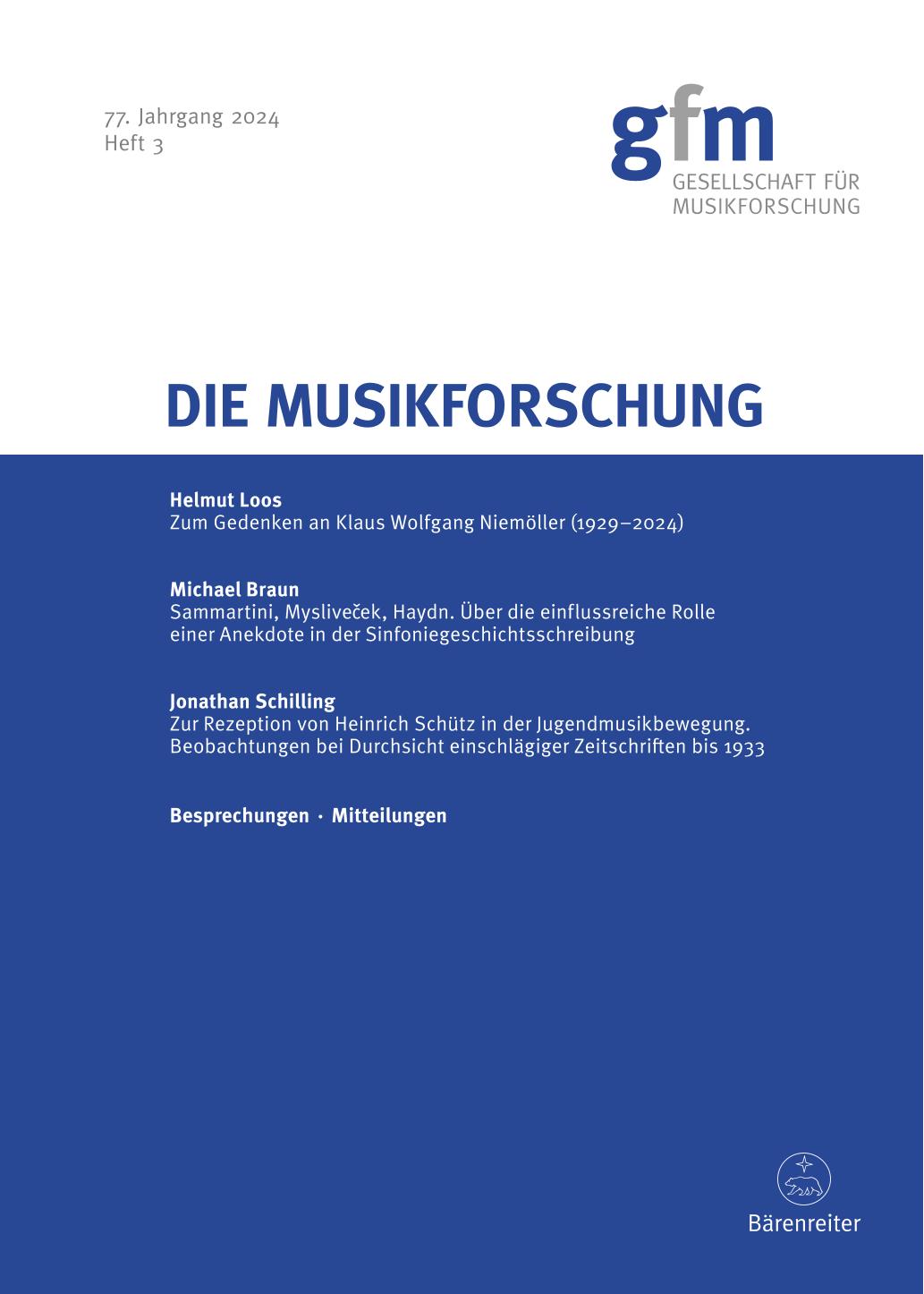Zur Rezeption von Heinrich Schütz in der Jugendmusikbewegung
Beobachtungen bei Durchsicht einschlägiger Zeitschriften bis 1933
DOI:
https://doi.org/10.52412/mf.2024.H3.3137Schlagworte:
Heinrich Schütz, Jugendmusikbewegung, Karl Vötterle, Bärenreiter, Rezeptionsgeschichte, Weimarer Republik, Neue Schütz-GesellschaftAbstract
This article examines how journals of the “Jugendmusikbewegung” (Youth Music Movement, or Singing Movement) shaped and promoted the reception of Heinrich Schütz. It was mainly through the medium of magazines that the Youth Music Movement was able to set the tone in the reception of Schütz during the years of the Weimar Republic. For this reason, several magazines from the years 1920 to 1933 were systematically searched for articles on Schütz. Three aspects in particular were examined: Firstly, the “Singkreise” (singing circles), which formed a core of the Youth Music Movement, but also stood in contrast to the more theologically and church musically oriented currents within the Schütz movement; secondly, the “Neue Schütz-Gesellschaft” (New Schütz Society) and its Schütz Festivals, which remained in declared hostility to the bourgeois cult of genius and were the central instrument for making Schütz a figurehead of the Youth Music Movement; thirdly, the Bärenreiter publishing house and its young director Karl Vötterle, who managed to gather all branches of the Youth Music Movement – including the Schütz movement in a prominent position – into his publishing house.






